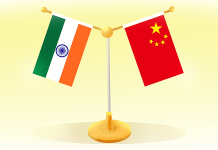The High Court upheld the state’s rejection, citing Rule 101(A) of the Tamil Nadu Fundamental Rules. However, the Supreme Court overturned this interpretation, emphasizing that denying maternity leave on such a ground violates the spirit of equality and dignity guaranteed to every woman.
Supreme Court Observations: The bench comprising Justice Ajay Rastogi and Justice Bela M. Trivedi clarified: • The right to maternity leave is rooted in a woman’s right to life and personal liberty.
• The restrictions on granting maternity leave to women with more than two children are arbitrary if applied without examining the individual facts of the case.
• The State cannot infringe upon a woman’s right to health and motherhood by imposing narrow administrative rules.
Chairman Satendra Singh’s Statement: Speaking on the matter, ICIM Chairman Satendra Singh stated: “This verdict is a significant milestone for working women across India. It not only upholds the legal rights of women but also reflects the evolving understanding of motherhood in modern society. Maternity is a sacred responsibility, not a statistical limit. No policy should ever compromise a woman’s health, dignity, or her right to nurture life.” He further emphasized that ICIM, as a nationally recognized body for industrial compliance and training, will actively disseminate awareness of this judgment among industries, HR professionals, and corporate compliance officers to ensure fair treatment of women employees.
Implications of the Verdict: • Women with more than two children will no longer be automatically denied maternity leave.
• Individual circumstances such as custody, remarriage, and biological responsibility must be considered.
• Employers and state authorities must uphold maternity leave as a non-negotiable part of a woman’s right to life, health, and equality.
ICIM’s Call to Action: ICIM urges all organizations—public and private—to update their HR policies in alignment with this Supreme Court ruling. Mr. Singh reiterated ICIM’s commitment to promoting gender-sensitive labor practices, especially through its compliance training programs accredited by the Ministry of Women and Child Development.
(Disclaimer: The above press release comes to you under an arrangement with NRDPL and PTI takes no editorial responsibility for the same.). PTI PWR PWR




